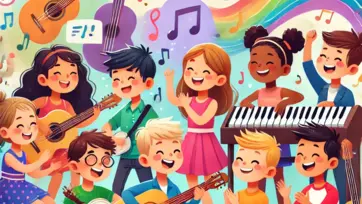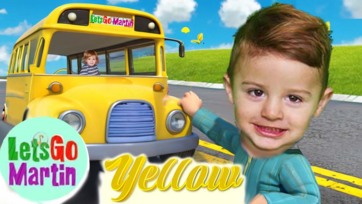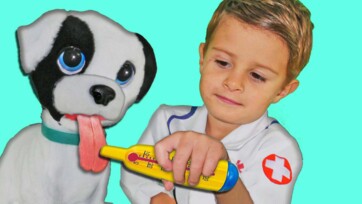Developing Social Skills Through Music for Kids
Social skills such as cooperation, sharing, and empathy are crucial for children's overall development. Learning how to interact with others, form friendships, and work in teams sets the foundation for a healthy social life. Music is a fantastic tool to help kids develop these social skills, as it encourages group participation, emotional expression, and understanding of others. Whether it’s through singing, dancing, or playing instruments together, music can enhance children's ability to interact with peers and navigate social situations.
The Power of Group Singing and Music-Making
One of the most effective ways to develop social skills in children is through group activities. Singing and making music together provide a unique opportunity for kids to experience teamwork and cooperation. In a group music setting, children must listen to each other, follow cues, and synchronize their actions. These activities promote a sense of unity, as children work together to create a harmonious sound.
For example, singing a song with repetitive verses or choruses allows kids to join in together, building a sense of belonging and teamwork. When children sing or play music in a group, they also learn to take turns, respect others' contributions, and appreciate the importance of everyone’s role in achieving a common goal.
Empathy and Emotional Expression Through Music
Music provides an excellent platform for children to explore and express their emotions. Singing songs about feelings or performing music that reflects different emotions can help children recognize and understand their own emotions, as well as those of others. This emotional awareness is a vital part of developing empathy—the ability to understand and share the feelings of others.
For example, a song about kindness, friendship, or feeling happy can help children connect with the emotions in the music, making it easier for them to relate to others who might be feeling the same way. Music that tells stories about friendship or helping others can teach children the importance of empathy and being considerate toward others' emotions.
Dance and Movement to Strengthen Social Bonds
In addition to singing and playing instruments, dance and movement are powerful tools for enhancing social connections. Dancing together to music helps children bond with their peers in a fun and active way. It encourages physical coordination, but also promotes social interaction through shared movement.
Children can dance with friends in a group, holding hands, making eye contact, and learning to work together to follow a rhythm or routine. This fosters communication and cooperation, while also allowing children to express themselves physically in a safe and non-competitive environment. Dance and movement also help children understand spatial awareness and personal boundaries, contributing to positive social interactions.
Sharing and Respecting Others Through Music
Another key social skill that music promotes is sharing. Many music-based activities, such as playing instruments or singing in a choir, require children to share resources and space with others. Music teaches the value of respecting others, whether it’s waiting for a turn to sing or sharing instruments with a friend.
For example, a song about sharing toys or taking turns can reinforce the importance of cooperation and mutual respect. By integrating songs into playtime or group activities, kids learn how to navigate situations where they need to share, take turns, and work together to create something beautiful.
Conflict Resolution and Communication Through Song
Music can also be a helpful tool for teaching kids how to resolve conflicts and communicate effectively. Songs can illustrate how to approach conflicts with understanding and respect, and they can provide strategies for peaceful resolution.
For example, a song about solving problems or apologizing can help children understand the importance of communication and finding peaceful solutions when disagreements arise. Music can serve as a calming tool to diffuse tension, helping kids to process their emotions and express their thoughts in a constructive way.
The Role of Music in Building Positive Relationships
Ultimately, music helps children develop the social skills needed to form strong, positive relationships with others. Whether through group singing, dancing, or playing music together, children learn how to work as a team, communicate their feelings, and empathize with others. By fostering these essential social skills, music not only enhances children’s relationships with their peers but also helps them navigate the world with greater confidence and compassion.
Incorporating music into daily routines or school activities provides children with opportunities to practice these skills regularly. Songs that emphasize friendship, kindness, and cooperation can serve as both fun and educational tools to support children’s social development. Through music, children can learn that working together, respecting others, and understanding emotions are not just important in music—but in life as well.





